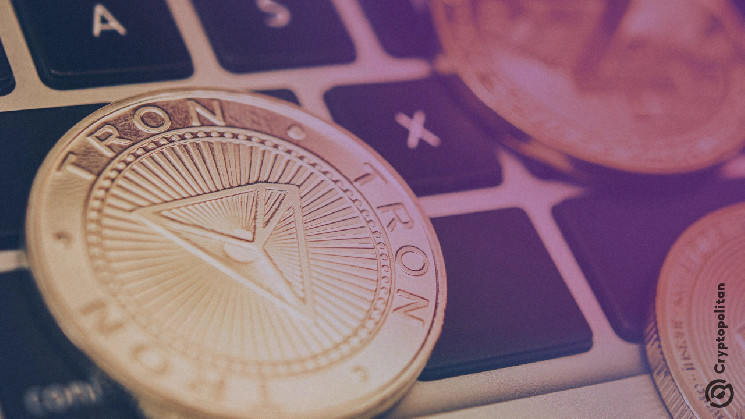TRON (TRX) achieved peak Tether (USDT) activity in 2024, roughly handling more than $17.9B per day in token transfers. Trading and DeFi volumes were even higher, with a 48% yearly growth.
TRON (TRX) achieved peak Tether (USDT) activity in 2024, handling on average $17.9M in token transfers. DeFi and trading volumes were higher, reaching $5.46 trillion. TRON turned into one of the most active USDT transfer platforms, despite the drop of supply at the end of 2025. The coming year, however, is seen as potentially successful for all stablecoins. In the first days of January, the total supply of stablecoins increased to a new record above $200.6B, of which TRON holds more than 58B tokens.
On average, the TRON network handled more than 2M daily transactions, spread across all sizes and categories. TRON handles both retail usage of USDT, and its native forms of DeFi and centralized swaps. The ongoing activity turned TRON into the biggest fee producer for the early days of 2025. In the first week of the new year, TRON produced $43.74M in fees, surpassing Ethereum’s $30.63M.
The usage of USDT on TRON expanded until early December 2024, when daily transfers slowed down. The network also saw a part of its USDT supply burned, while big exchanges rolled over their stablecoin holdings to Ethereum’s version of USDT.
TRON still dominates Ethereum in users and volumes
Despite rolling back some of the USDT issued on TRON, the chain still dominates over Ethereum in user count and the number of transfers. More than 83% of USDT users chose TRON’s TRC-20 version.
Those users produced up to 60% of daily transfers, with extremely small competition from new arrivals like Celo. TRON transfers still have a smaller average volume per user. Ethereum is still the leader with more than $233K in volume per user. TRON transfers tend to be lower, at around $41K per user on average. However, those transfers are not equally spread, and TRON still hosts a significant portion of whale and professional transactions.
Ethereum’s supply of USDT expanded to $79.6B and is considered the most liquid and widely tradable version, though used only for entry and exit points. TRON’s token is also used for e-commerce and P2P marketplaces.
The TRON network hosts a much smaller DeFi sector, and USDT is not as widely used for collateral purposes. TRON hosts $7.66B in value locked, most of it tied to JustLEND.
TRON retains a different stablecoin usage profile
The rise of TRON-based USDT spending shows a different trend for the past year. The rise of TRON activity coincides with a similar expansion on BNB Smart Chain. Those two chains offer cheaper transactions, while also tapping demand from the Asian crypto market.
TRON was the leader for both senders and receivers of USDT, especially for high-value transfers. | Source: Dune Analytics
Both senders and receivers grew on TRON and BNB Smart Chain, with 2 to 4 million daily active wallets.
TRON transactions under $100, however, have a smaller share, as small-scale users have shifted to BNB Smart Chain.
USDT on TRON retains its influence for professional-scale, or large-scale transactions. TRON dominates for transactions in the $1,000-$10K range and in the $10K- $100K range. The activity suggests whale transfers between exchanges, DEX facilities, or storage wallets.
The Tether treasury holds around $2.1B in TRC-20 stablecoins, ready to be deployed if the market demand increases. The TRC-20 version is held in several top exchanges. Within the top 10 wallets, USDT is key for OKX, Gate.IO, Kraken, and Bitfinex. Both Kraken and Bitfinex are also among the most active traders of the TRC-20 token, establishing higher liquidity for BTC and other assets. Bybit also holds over 105M TRC-20 USDT.
The usage of this stablecoin version faced a slowdown at the end of last year, as the EU requirements for stablecoins excluded USDT due to lacking cash reserves in a Euro Area bank account. The enforcement of MiCA regulations, however, has not diminished demand for other global transfers.
TRON-based stablecoins are also closely watched for potential crimes. The chain is watched by the T3 financial unit, which collaborates with TRON to lock wallets for suspicious activity. Since August 2024, $100M in assets has been locked, though this makes up a small fraction of the total TRC-20 stablecoin activity.
Land a High-Paying Web3 Job in 90 Days: The Ultimate Roadmap
Read the full article here









